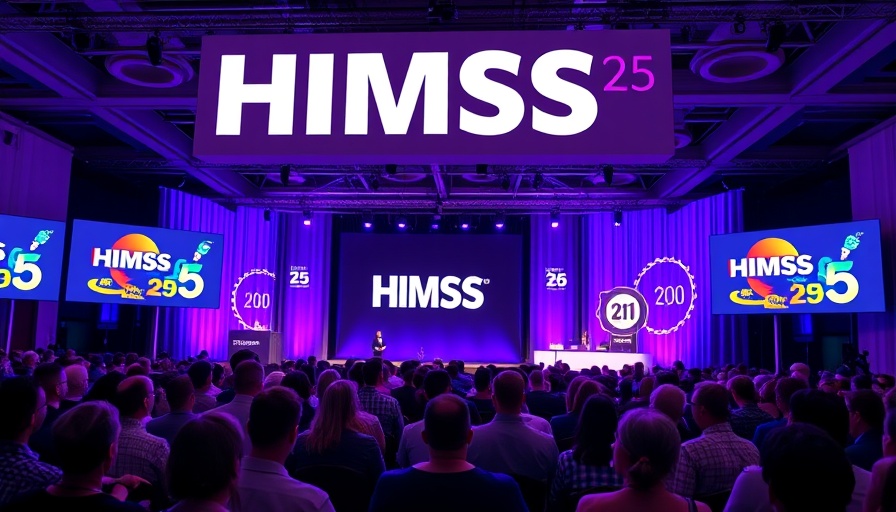
Transforming Healthcare with AI: A New Era in EHR Systems
The integration of artificial intelligence (AI) into Electronic Health Records (EHR) marks a pivotal transformation in how healthcare is delivered and managed. Leading companies like Epic and Oracle are at the forefront of this revolution, aiming to alleviate the administrative burdens faced by clinicians while enhancing patient care. This surge in AI adoption responds to the demands of a healthcare system that is often overburdened and under strain, drawing attention to the need for efficiency in documentation and improved clinician satisfaction.
Marrying Medicine with Technology: The AI Advantage
With 78% of physicians and 96% of hospitals utilizing EHRs as of 2021, the challenge remains in optimizing their functionality. Many professionals express frustration with EHRs, citing inefficiencies and distractions from patient care. The advent of AI has prompted major players in the EHR market to innovate. From generative AI that can draft clinical notes to ambient listening technologies that capture patient interactions, these developments serve not just to streamline software but also to enhance the clinician experience. As highlighted by healthcare analysts, AI tools promise to shift EHRs from cumbersome systems towards dynamic operational platforms that facilitate improved patient-provider interactions.
The Future of EHRs: Risks, Rewards, and Realism
While the potential benefits of integrating AI into EHR systems are vast, concerns regarding data privacy, quality control, and biases persist. Reports show that many health organizations feel unprepared to fully harness generative AI's capabilities. As the industry grapples with these challenges, emphasizing the importance of a balanced approach towards technology and human oversight is crucial; it ensures that AI implementations do not compromise patient safety or data integrity. Additionally, current legal frameworks struggle to keep pace with rapid advancements, highlighting an urgent need for regulatory clarity.
Engaging Stakeholders: Lessons from the Early Adopters
As we assess the wave of innovation brought by AI, organizations adopting these technologies can draw valuable lessons from those leading the charge. Engagement strategies to include clinicians in the development process, ensuring feedback mechanisms are in place, and promoting an agile approach to technology adoption can significantly enhance the efficiency and effectiveness of EHR systems. This collaborative effort allows for not just improved outcomes in patient care but also higher satisfaction rates among healthcare professionals.
Actionable Insights: Embrace the Future of Healthcare
Healthcare consumers must stay informed about these technological shifts to fully understand their implications for care quality and delivery. As EHRs evolve to feature AI capabilities, patients can expect enhanced communication, faster access to records, and overall improvements in the quality of service provided. The journey toward modernized healthcare empowered by AI is just beginning, and its success hinges on innovation balanced with rigorous oversight.
 Add Row
Add Row  Add
Add 




 Add Row
Add Row  Add
Add 



Write A Comment